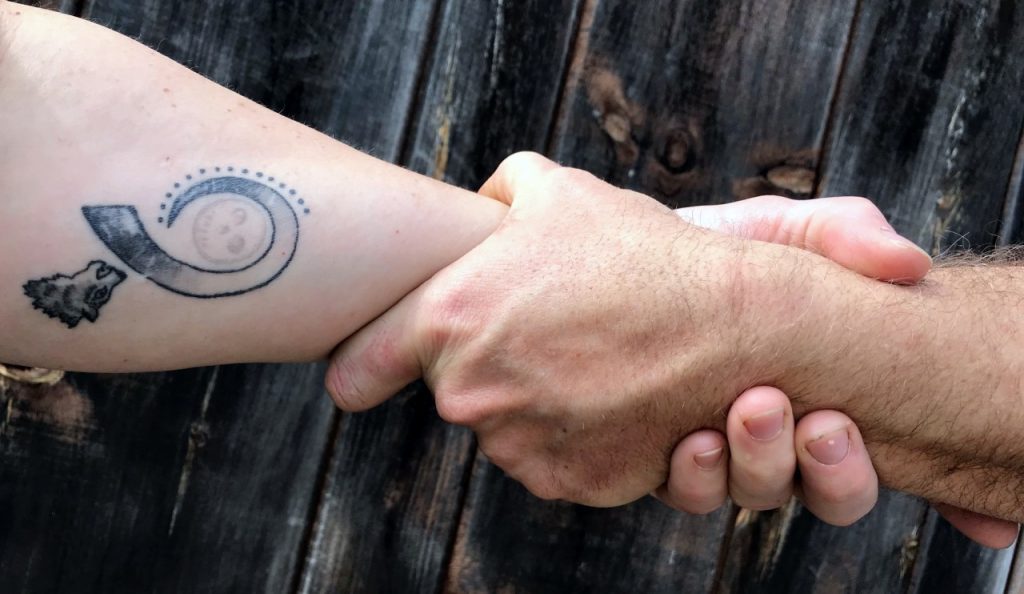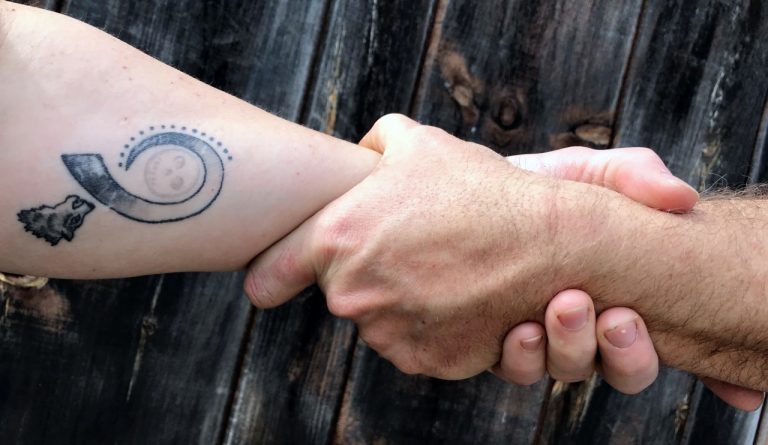The Answer is in the Team

I don’t know how you were raised, but I feel like I had a typical rural Vermont upbringing. My parents were (and are!) fiercely independent, and self-sufficiency was one of my primary lessons. There wasn’t a thing I couldn’t do, or learn, or be responsible for.
And that’s how I conducted my life, for about 48 years.
I was (and still am!) an avid lifelong learner. I love learning new things and have wide and varied interests. I studied martial arts. I took pottery classes. I took voice lessons. I got a Bachelor’s degree in one topic and a Master’s degree in another. I learned about competitive cooking, became a certified BBQ judge, and how to bake and work with desserts semi-professionally. When there are conferences or trainings in areas I have any interest in at all, I tend to go. I always use my available professional development money at work every year. I decided I wanted to farm and took business planning classes. I’ve attended more than 300 workshops and on-farm events, as an organizer and attendee, and have learned something from every one.
And I was raised to do it myself. One of my earliest memories is my Dad saying, “If you want it done right, you have to do it yourself”. I took that to heart. I gained all these skills so that I would be a useful employee and a useful human, and capable so that I wouldn’t have to depend on anyone else. I pushed and pushed. It’s a wonder that my friends still talk to me, given that my drive to push meant that I have not been as available or as good a friend as I’d like (and I recognize that my farm life interferes with that, too).
After about 35 years, I recognized that I had a problem. I worked at a nonprofit and was always behind on the bookkeeping in favor of other projects that I had brought on myself. We had a very capable and wonderful office assistant, who took over that work. The day that the bank statements came in the mail, she had everything reconciled and turned into our Executive Director. Previously, I had taken weeks, if not the whole month to get them to him. Gently, she reminded me she could do other work to help me too, but my grip was too tight. I could see the problem, but really had no idea how to change. There was too much work to do to stop and show anyone else.
When I was 42, I became the supervisor of two people. I was grateful to have such nice, capable and easy people to supervise, and felt we worked well together. I still did what I did, and when they offered to help, I said, “Thank you but I’ve got it” (even when I didn’t).
When I was 46, I received another in a long line of annual reviews that said, “you do a great job, and you’re an asset to our (university extension) group” (which felt wonderful!) and then the gut punch “…but your teammates tell me they are worried about you, and frustrated that you are not sharing more of the workload, like you don’t trust them.”
For years, I had just handled things. I had said yes because I felt like I needed to *protect* the team, and that by NOT passing things to them, I was actually being a good leader. I thought that shielding my team was a good thing, and suddenly the light began to dawn on me that despite being a supervisor, I was still gripping all the work, the thoughts, the responsibilities too tightly. Ten years after the first conversations about this, I had learned nothing about REAL delegation, trust or supportive leadership.
Now I knew I was doing it wrong, but I still didn’t know how to do it differently. The old habits were SO ingrained. The volunteers at my annual conference asked, “Can I do anything to help?” and my answer, “No, that’s OK”, which always led me to be the last person cleaning and packing long after everyone else had gone home. The birthday party or Thanksgiving guests who asked if they could do dishes to help, or chop the vegetables.
What I didn’t realize for a long time is that my friends and family and teammates still asked, but even when I said no, they ignored me and quietly helped anyway. Dishes were magically done during the birthday party. Cheese and crackers and veggies were suddenly on the table during the pre-Thanksgiving festivities, and signage, boxes and display tables were packed and loaded onto a hotel cart after the conference.
Even though I didn’t allow myself to look to the team, the team was there.
Still I didn’t get it. I thought I did. I even wrote a long blog post about asking for help and how important that is, and how so many people helped us get to the farm. We are still so grateful for that, and many people did help us (and still do), but deep down in my heart, I still thought that this whole thing (the farm, our life, my job), is entirely on me.
And then lightning struck.
In February, I had the great privilege of being able to attend Ranching for Profit School. For more than 30 years, RFP has been the premiere educational experience for ranchers (livestock farmers) around the country (and other countries, through their partner schools). I was excited to learn more about how to make my farm more profitable, and also to better understand what helps other farms be more successful, as graduates of this program clearly are.
Before the School started, we had some reading and pre-work to do at home, and were expected to come to the School with the answers completed for a 50 question test of what we had learned. We arrived and were placed into assigned table/teams, with people who would become our “board of directors” for the week.
The group exercise with the homework involved us discussing every answer to the 50 questions with our team, to decide on the right answer, and then scoring our personal answers and the group answers against the correct answers. We then went around the room and each table announce their highest individual score and then their team score.
I had the highest score at our table, which made me feel pretty good. I did feel a little bit like a ringer, that it had more to do with my extension job experience and the opportunity to learn from so many people and in so many places, but I admit that it made my ego feel pretty good about itself. Apparently, I was pretty smart.
Our team score was HIGHER. And as we went around every one of the other tables, their team score was higher than any individual high score. This time, the metaphorical gut punch went straight to my core.
Maybe I had talked myself into thinking I had the best ideas and didn’t need anyone, because I was so headstrong about being self-sufficient. Maybe if I hadn’t been so good at going it alone (see: high score), I might have figured this all out sooner. The Answer is in the Team. No matter how smart or capable or successful we are alone, we are MORE as a TEAM.
I spent the week practicing with my team. I didn’t push. I asked. I asked for their ideas and suggestions about the case study problems we were solving together. I asked if they could share tasks we were doing (when my default would have been to just jump up and do them). And on the last day when we worked through specific challenges for each farm, my teammates offered ideas and suggestions to each other and to me with a perceptiveness that I can’t begin to describe. I learned to trust the team in a way that I have never allowed myself to be before, and just as importantly, I got to practice it for a week.
After the School, I enrolled in a follow up program called EL, which is a year-long commitment and a lot of work serving on a board with, and for, another group of farmers. I needed to do that to keep myself moving forward, but I think deep down I need to keep practicing what it’s like to build and trust a team. I’m working harder on it in my job life; trying to talk less and listen more, actively passing things (with trust) to others to handle them. I’m trying to loosen the illusion of control that I’ve been clinging to, because the team is bigger and stronger and smarter and more capable TOGETHER than I am alone. And when I forget that, I have a meeting with my EL board, and they remind me.
Now I’m practicing. I’m practicing at work when I pause and say, “Yes, here’s a job that would really help me out, thank you.” And I’m practicing when I work on developing farm systems that can be performed by other people if I get sick or have to be away. I’m practicing when I hold back my vision of a thing and ask for others’ visions first. I’m practicing as I redesign my farm and life to be something that incorporates the strengths, skills and passion of the people around me. I’m practicing as I work to develop a life that I can leave for a while to spend time with friends and family.
Recently, I came across a quote by Stephen Covey, well-known author of The 7 Habits of Highly Effective People. I once felt dismissive of authors writing about personal improvement, thinking they were get-rich-quick people, and therefore not to be trusted. Maybe I just wasn’t in the right place in my life to appreciate the message. Covey says, ‘Dependent people need others to get what they want. Independent people can get what they want through their own effort. Interdependent people combine their own efforts with the efforts of others to achieve their greatest success.’
I have been proud of my independence, but I think I’m finally ready to build something greater than any one person alone.
Thanks for being on our Team.
Jenn

Ah….no wonder you needed time to absorb recent experiences. May you be on the road to interdependence! 🙂
It has and continues to be quite a journey!